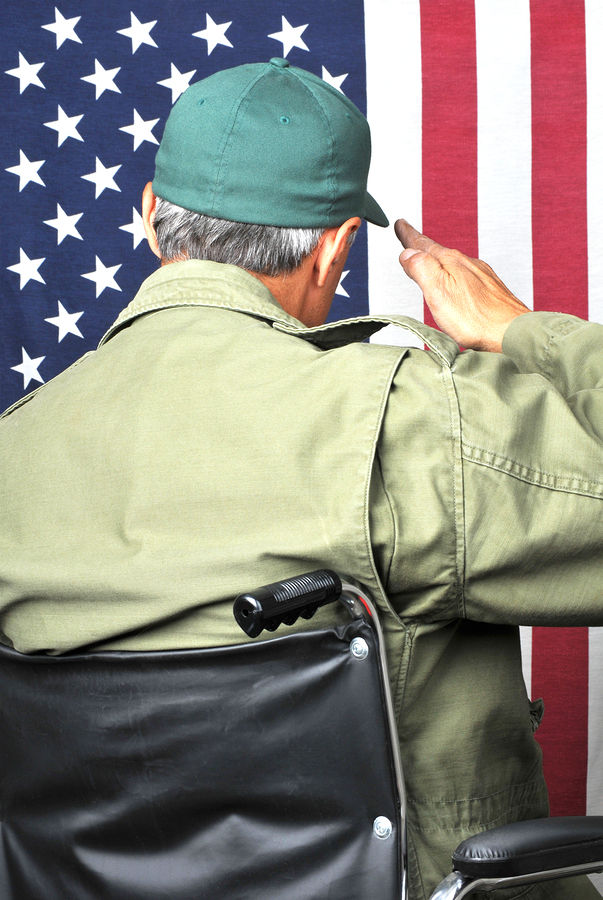Jan 10,2020

Did you know that military veteran caregivers are twice as likely to experience depression and social isolation than non-military caregivers?
There have been major military operations that have affected our military members and veterans since 1939 to present day, so these family caregivers may be caring for someone in the age range from 18 years old to over 100 years. These veteranshave a wide range of needssuch as traumatic brain injury, hearing and sight impairments, breathing difficulties, mobility limitations, loss of limbs and more.
Being the primary caregiver to a military veteran has unique complications. Cognitive impairments such as a dementia or traumatic brain injury can magnify veteran’s post-traumatic stress triggers making it difficult to predict what actions, words, images, noises or smells will affect them.
Compounding the exhaustion of caregiving, they may have needed to move away from family and friends to be closer to a Veteran’s Administration Hospital and network making them highly vulnerable to social isolation, depression, hopelessness, and declining health.
How is VA strengthening its caregiver program? In recent months, VA has developed or amended 14 standard operating procedures to clarify program requirements for VA staff, increased oversight in each Veterans Integrated Service Network, provided enhanced training and education to staff and caregivers, and boosted operational capacity with the ongoing hiring of hundreds of new staff across the country.
What services does VA offer for all caregivers? Caregivers are eligible for a host of VA services including services offered under the PGCSS. These services are available to eligible Veterans of any era. PGCSS includes training, education, respite care, a telephone support line, peer-support mentoring, self-care courses and other services. These services are available to support all caregivers, where the Veteran is enrolled for care in Veterans Health Administration, regardless of illness or injury.
What else is VA doing for caregivers? VA is working across the organization to ensure caregivers have a positive experience through program improvements and initiatives to include:
How can I learn more? For detailed information on the CSP and the full range of services available to caregivers, visit: https://www.caregiver.va.gov/ For information on the MISSION Act, visit: https://missionact.va.gov/
https://www.military.com/benefits/veterans-health-care/new-va-family-caregiver-program.html
“Honor to the soldier and sailor everywhere, who bravely bears his country’s cause. Honor, also, to the citizen who cares for his brother in the field and serves, as he best can, the same cause.”
— Abraham Lincoln
References:
https://www.caregiver.va.gov/docs/Caregiver-Support-Program-FAQ_10172019.pdf# Accessed 1/10/2020
Feel free to contact us with any questions regarding our services or to schedule a visit.